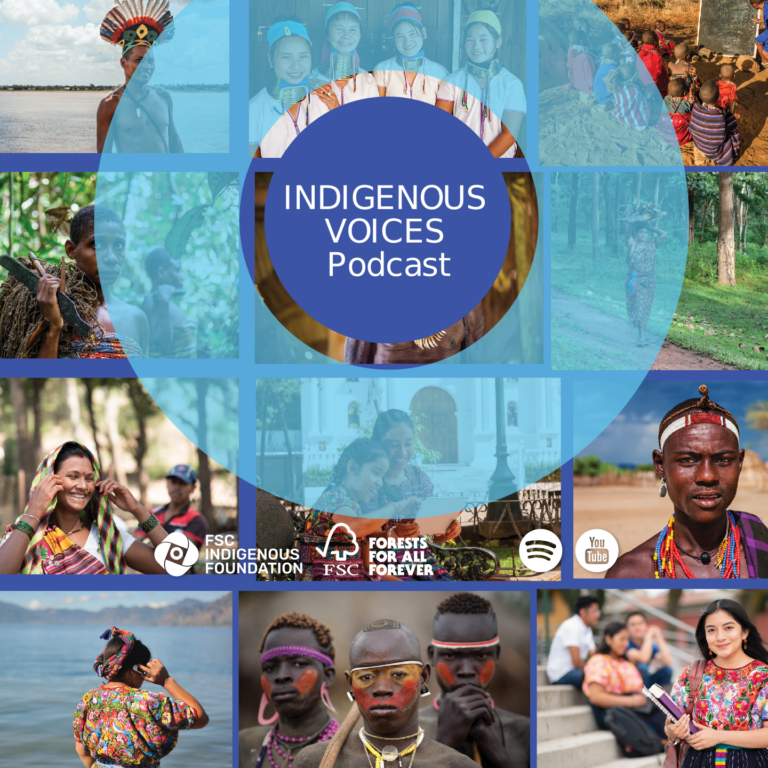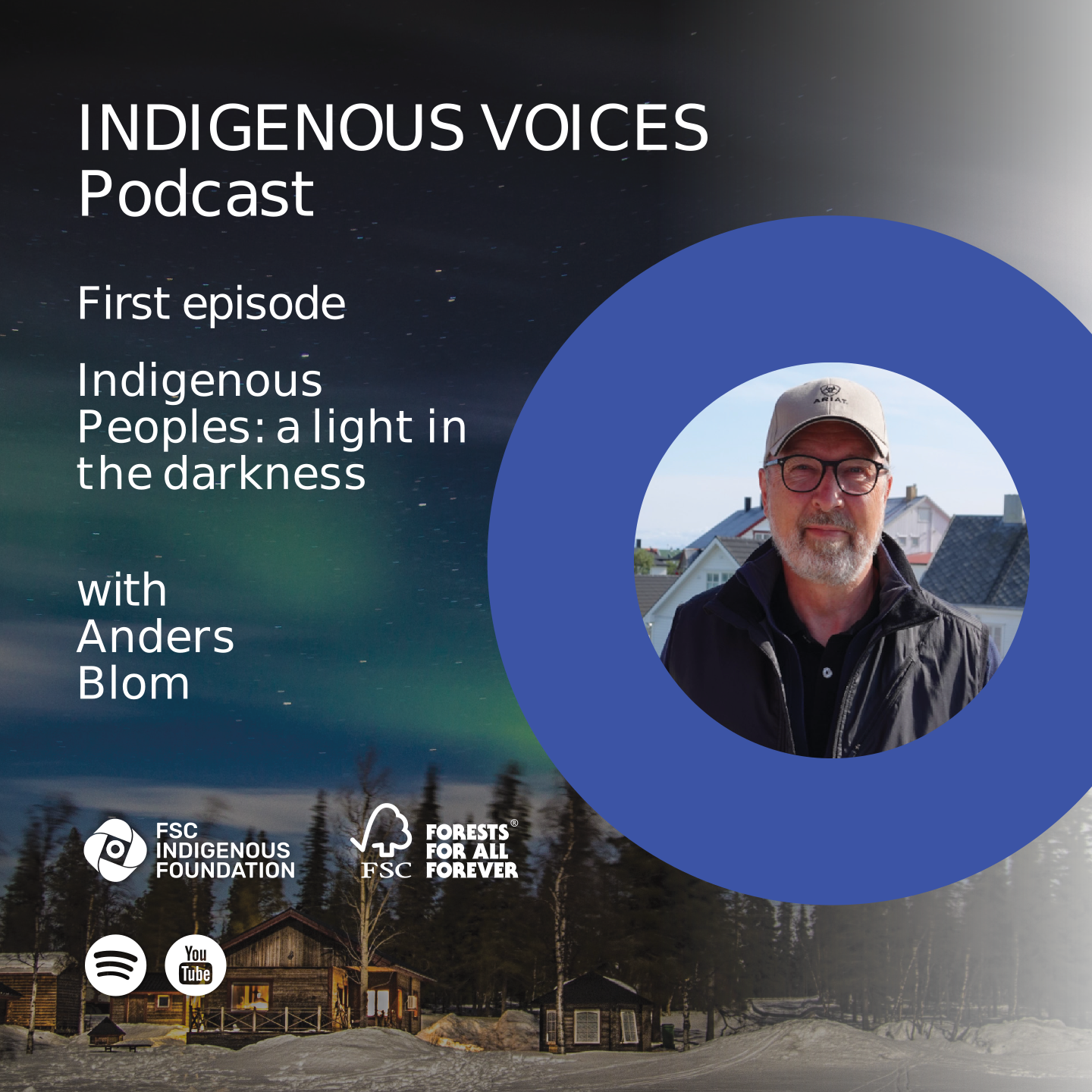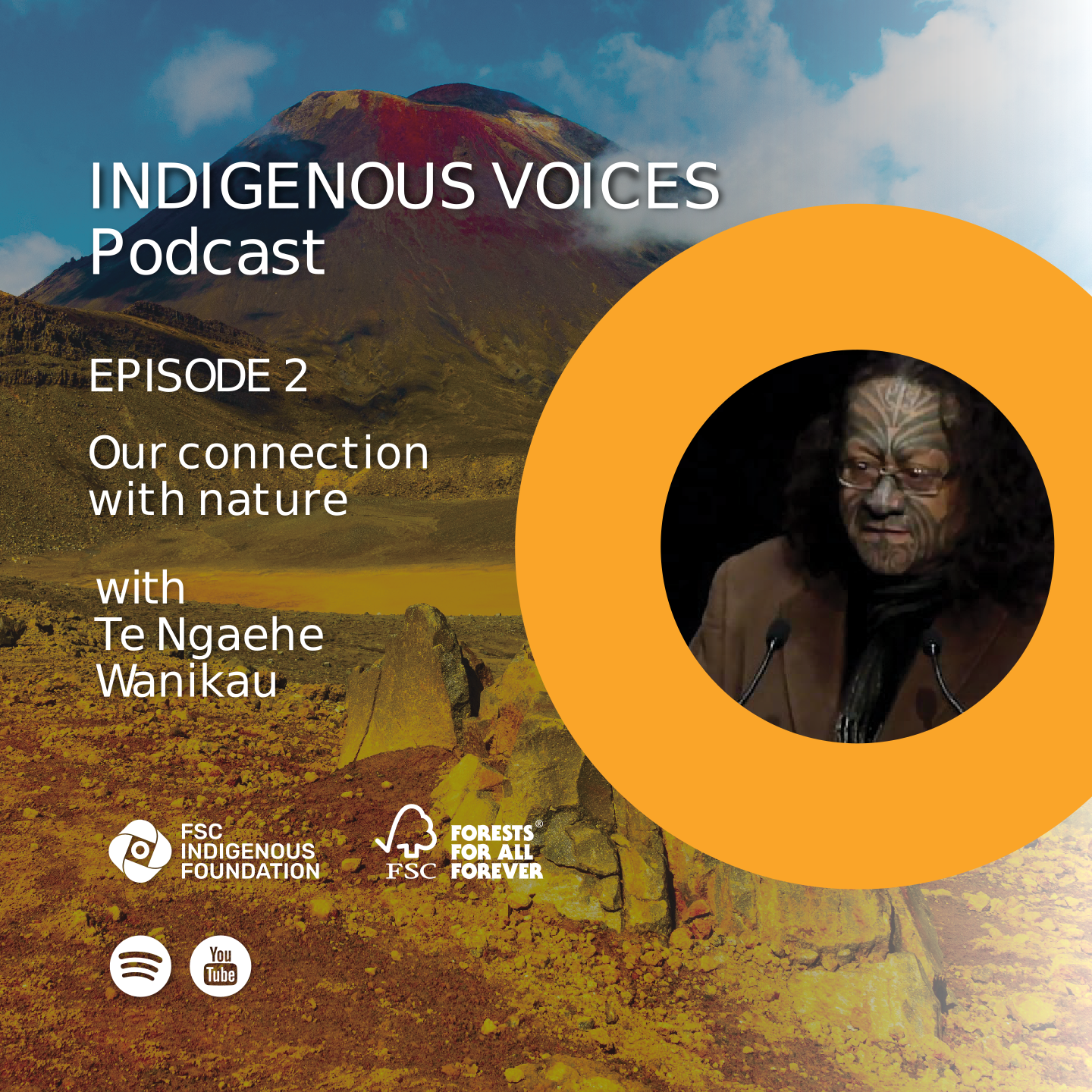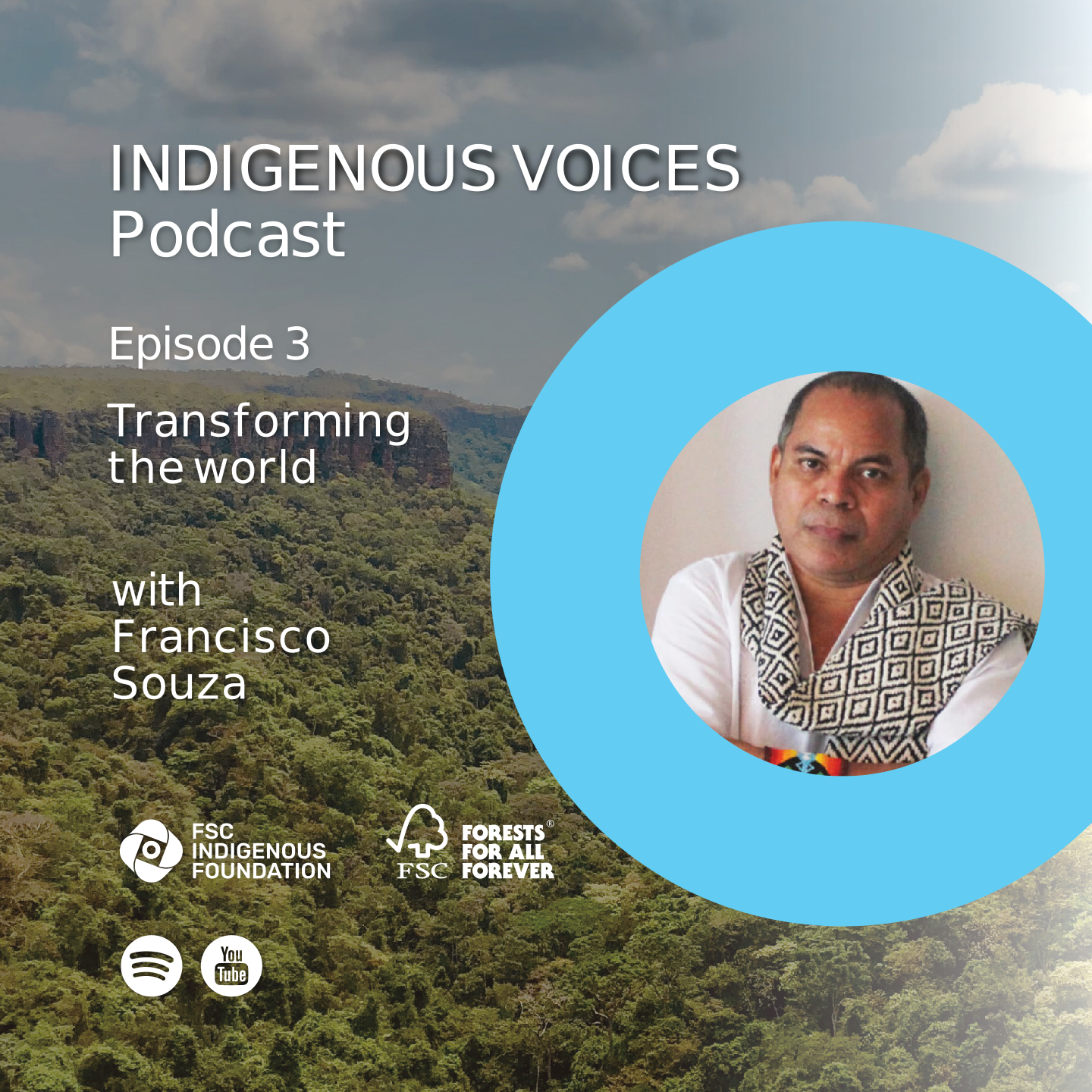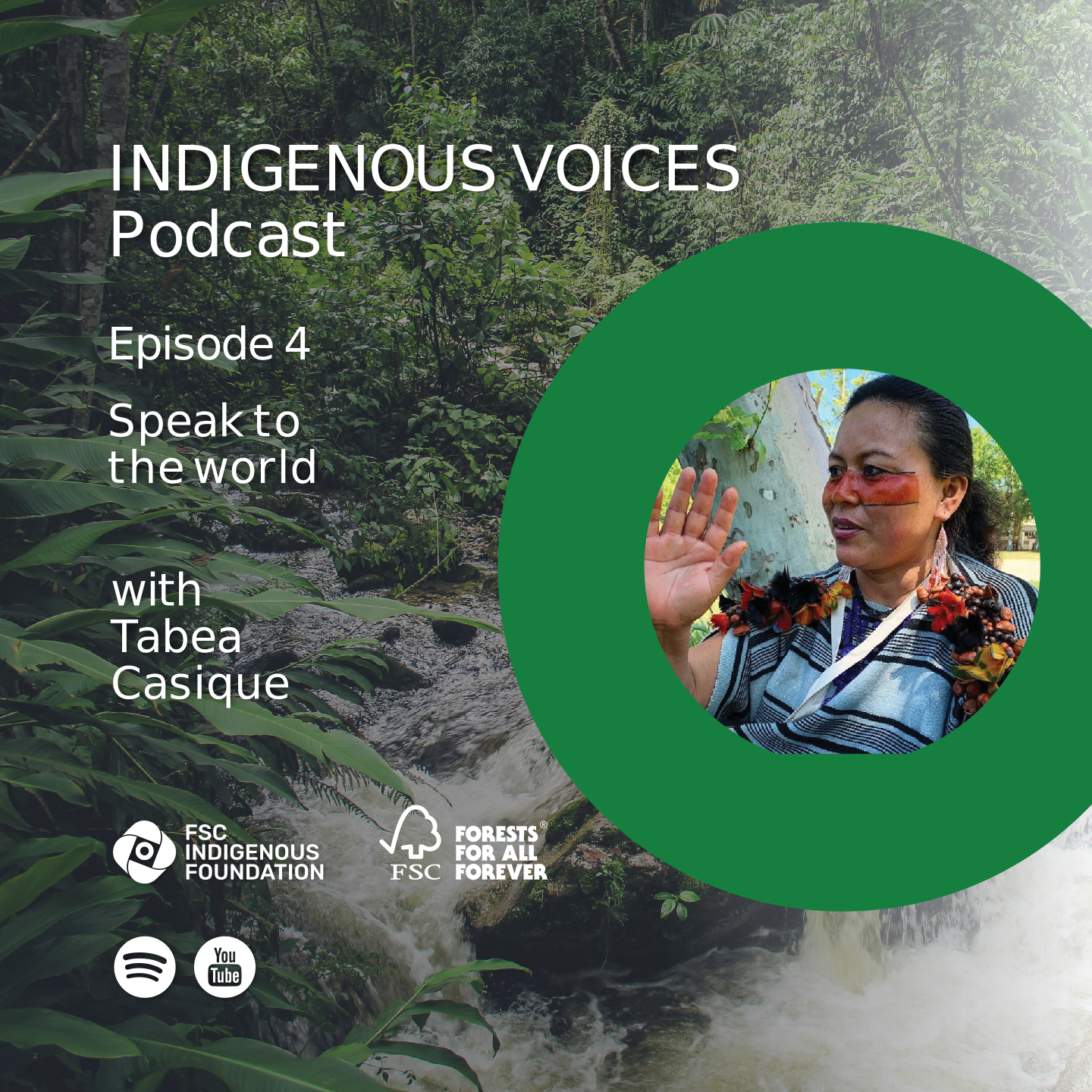Introducing the second season of the podcast “Indigenous Voices”
Indigenous leaders discuss traditional knowledge, successful Indigenous businesses, and Indigenous women's rights.
On the International Day of Indigenous Peoples on August 9, the FSC Indigenous Foundation launched the podcast “Indigenous Voices” to recognize the global value of Indigenous Peoples, their rights, livelihoods, territories, and natural capital. In the episodes, we have conversations with Indigenous leaders to listen and learn from their experiences, knowledge, opinions, and analyses related to the global issues we face as human beings.
Listen to the first season here.
In the second season, we learn more about Indigenous women’s challenges, rights, and victories. We also learn about the role of traditional knowledge in the fight against climate change and the values, principles, and lessons that have made Indigenous businesses successful. This season features leaders and experts from Taiwan, Panama, the United States, and Kenya.
Episode 5 – A sustainable future for all
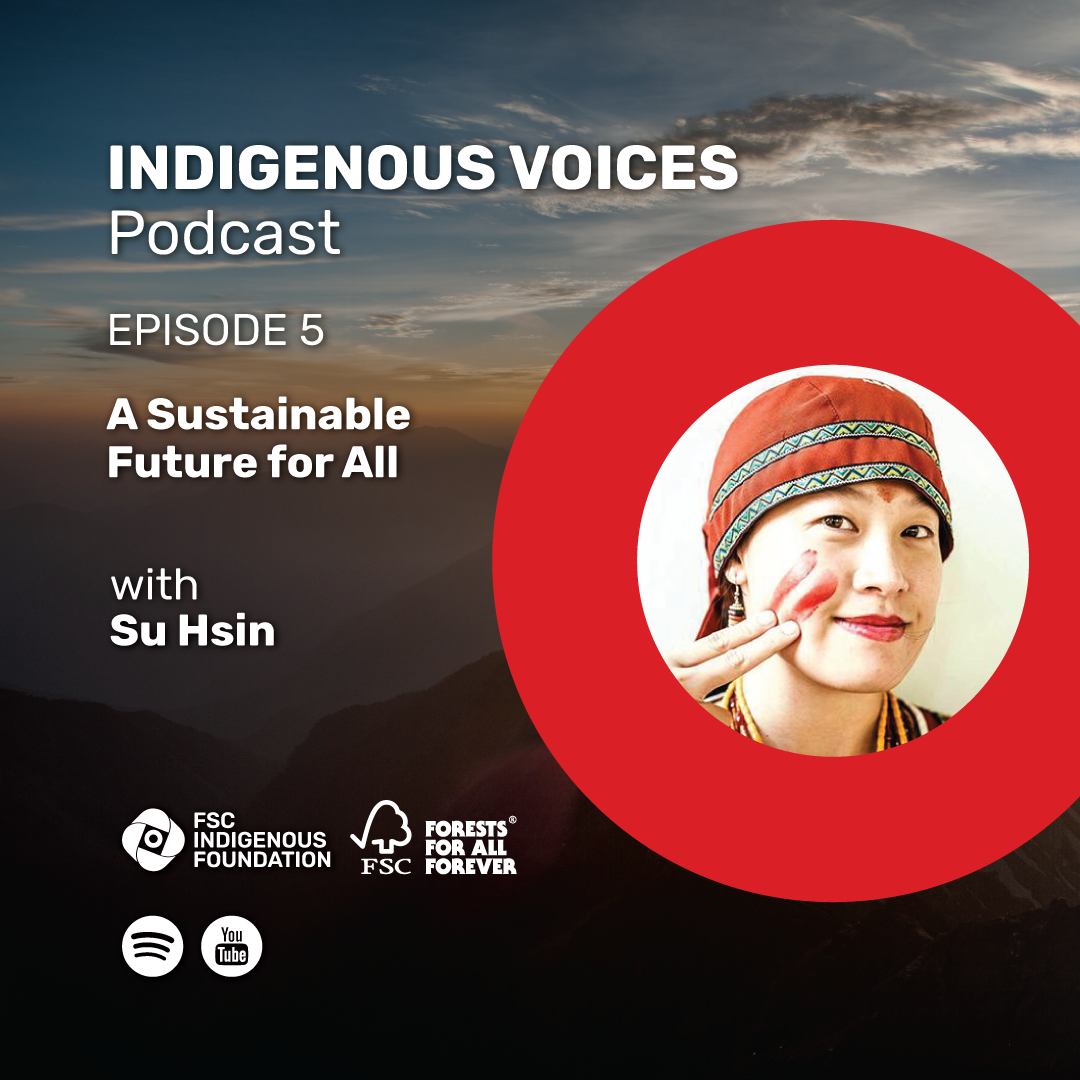
In the fifth episode of “Indigenous Voices,” Su Hsin, Indigenous civil engineer and human rights advocate of the Taiwan Papora Indigenous Development Association, discusses the challenges faced by Indigenous Peoples in Asia in securing their rights. She highlights the importance of involving Indigenous women and youth in the effort to ensure a sustainable future for all.
From her experience in risk management, Su explains how traditional knowledge can help combat the crises humanity is facing, especially the effects of climate change and the COVID-19 pandemic.
“As an Indigenous civil engineer, I know how to build a safe environment for the people. I use my traditional knowledge which I learned from my ancestors, and legends and stories, to know which places around the mountains and rivers are dangerous to build.” Su Hsin
Listen to the fifth episode here.
Episode 6 – Women changing the world
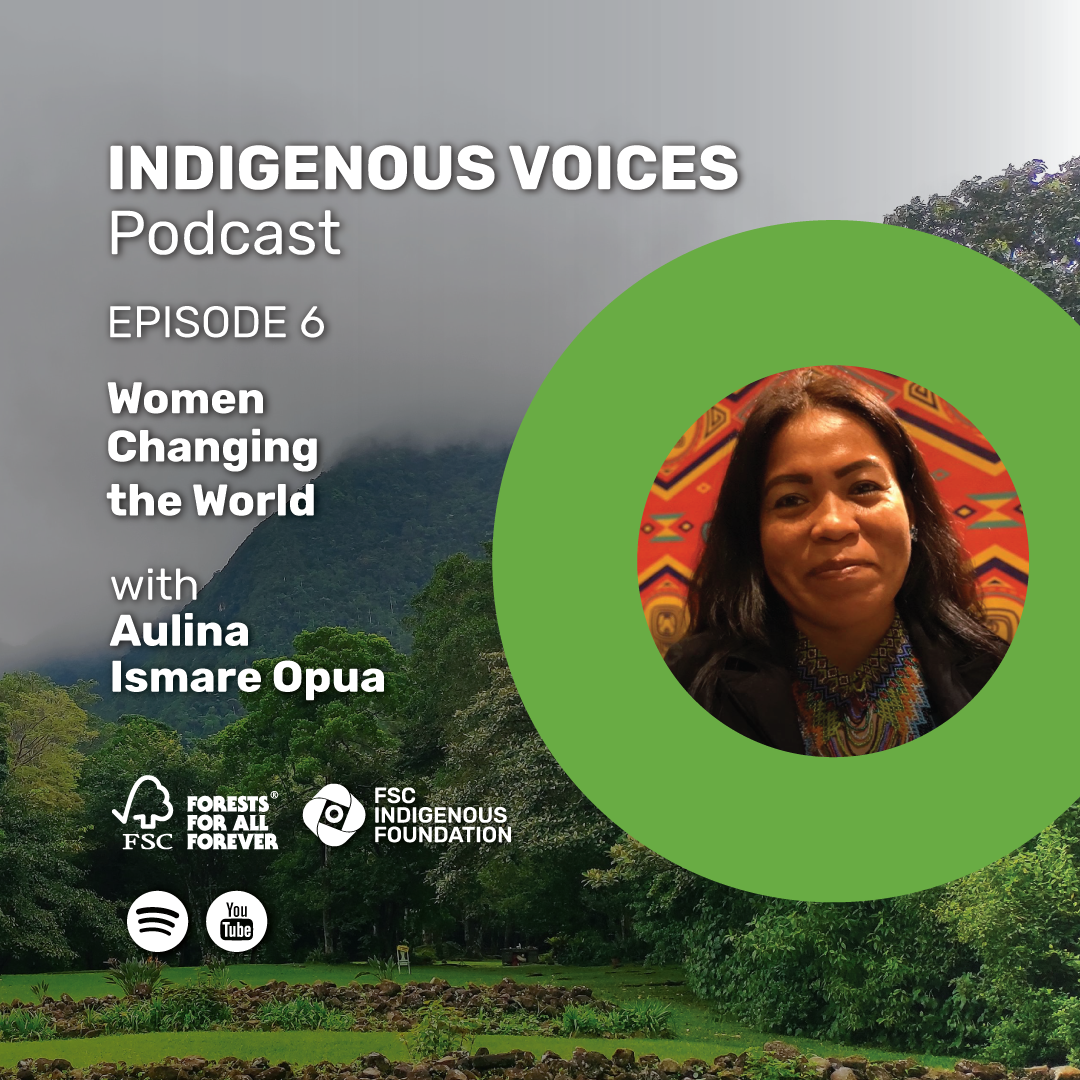
In this episode, Aulina Ismare Opua, first elected cacica of the Wounaan People of Panama, discusses the situation of Indigenous women in Panama and Latin America, their participation in national and international leadership roles, and the importance of generating female empowerment initiatives that strengthen the capacities of Indigenous organizations.
Aulina will share the story of how she became the first woman cacica of the Wounaan People, the responsibilities and challenges this represents in her life, and her projects to strengthen the participation of Indigenous youth and women in Panama.
“We are going to represent, we are going to make Indigenous women visible in the future: today, tomorrow, and forever.” Aulina Ismare Opua
Listen to the sixth episode here (in Spanish).
Episode 7 – Education towards women’s empowerment
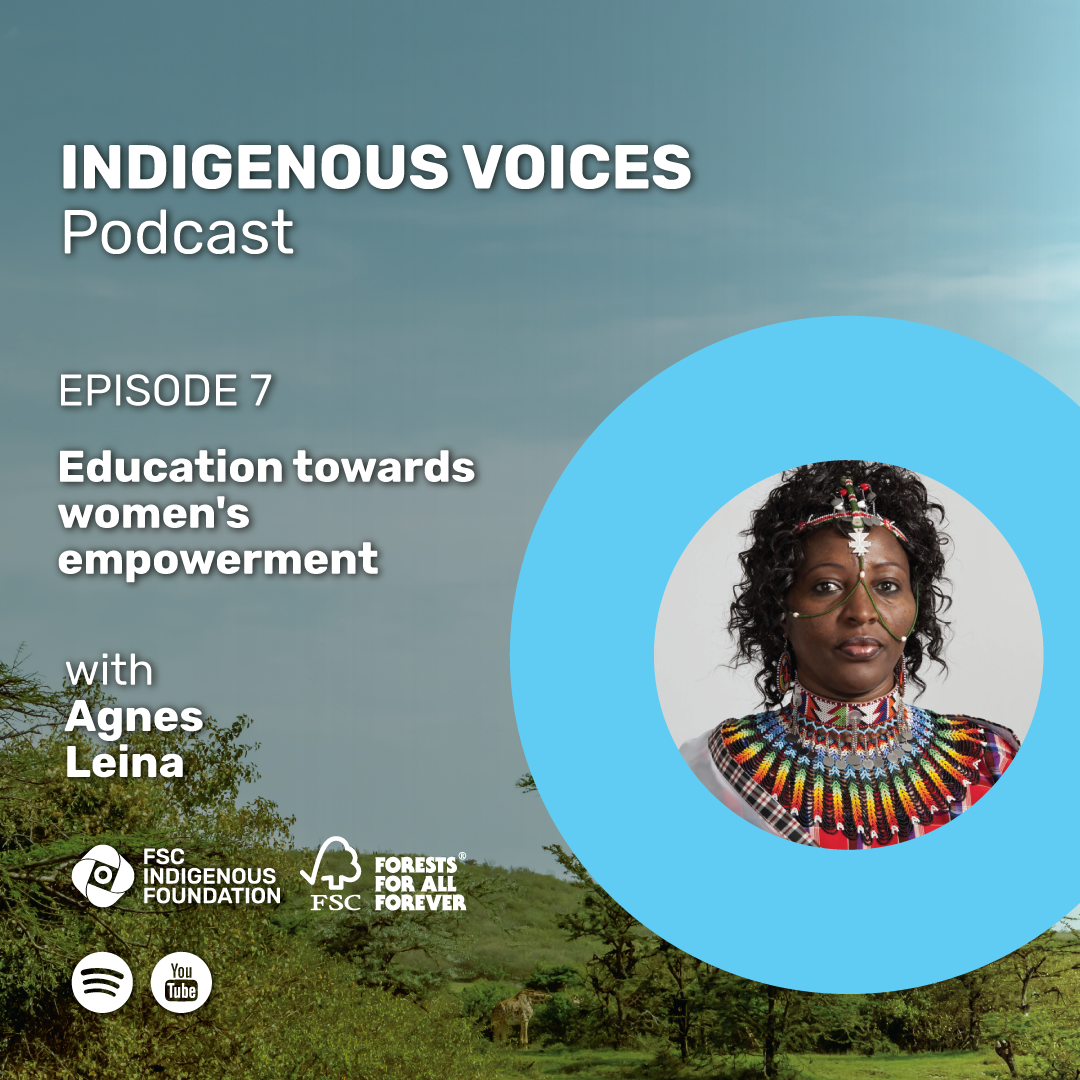
In the seventh episode of “Indigenous Voices,” Agnes Leina of the Samburu People, Director of Il’laramatak Community Concerns and Gender Coordinator of IPACC, shares the reality of Indigenous women and girls in Kenya.
Agnes highlights the need for changes in communities that allow for better education, more opportunities for women, and the need to fight against female genital mutilation. In order to eradicate violence against Indigenous girls and women, Agnes states that it is necessary for women to be leaders in their communities so decisions will be made in favor of Indigenous women and girls.
Examining the root causes of gender-based violence, Agnes discusses the climate crisis that causes droughts and the shortage of food and water generated by the COVID crisis.
“Women need to sit in political leadership positions, and once they are there, they are able to make decisions. If you are not at the decision-making table, what do you expect? Unless you are at that table, everything will be decided and you will be left behind.” Agnes Leina
Listen to the seventh episode here.
Episode 8 – Succesful Indigenous companies
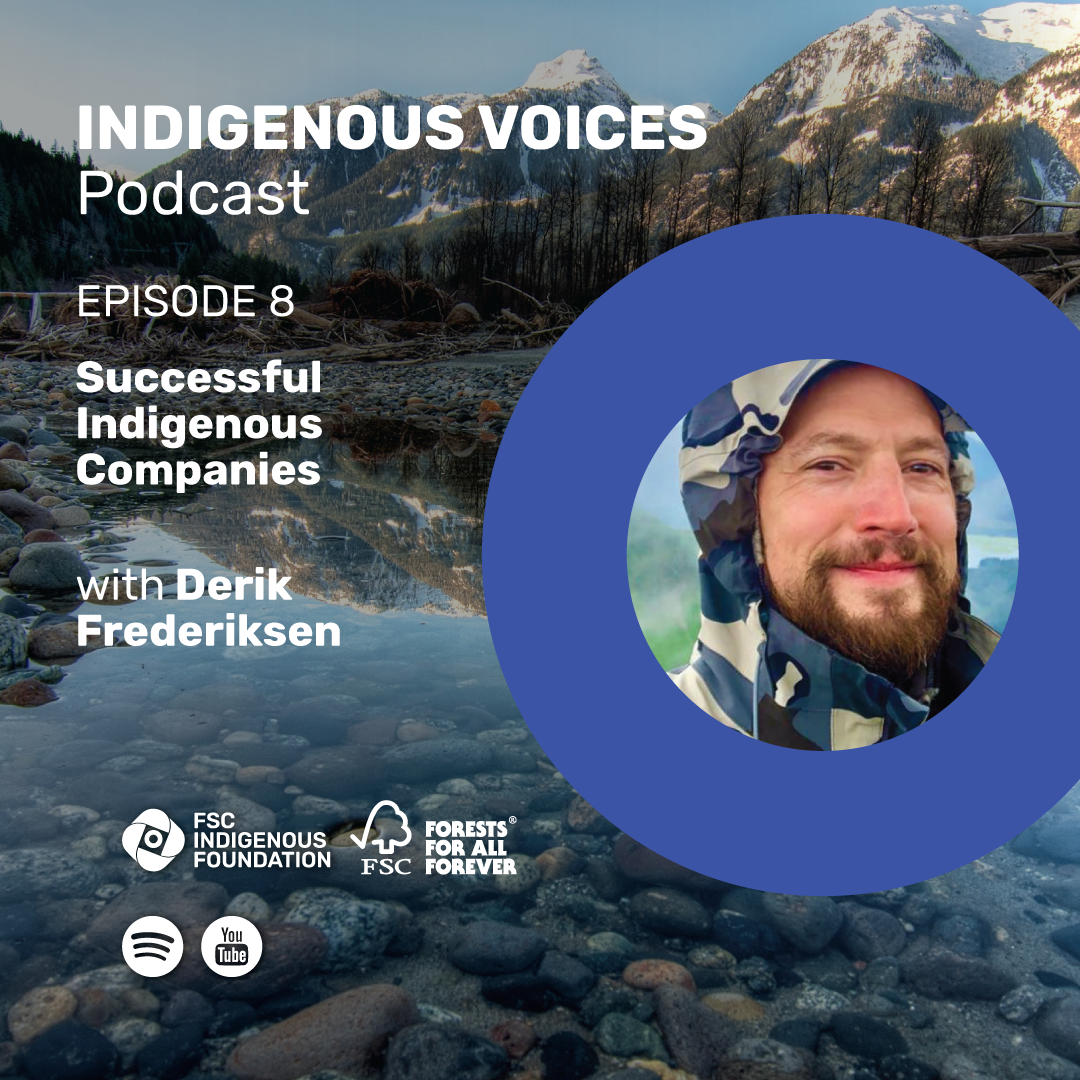
In the eighth episode of “Indigenous Voices,” we speak with Derik Frederiksen, director of FSC USA and member of the Tsm’syen People of Southeast Alaska and British Columbia.
Derik will tell us about his experience in forest conservation, his first experience of climate change, and his commitment to advancing Indigenous rights and culture to protect ancestral homelands.
He also speaks about Sealaska, an Indigenous company located in Southeast Alaska that works for and on behalf of the communities in the area.
“The decisions that we make as a People and as a company have largely been with the mindset: Whatever activity we do, whatever endeavor we embark in, we look at it through the lens that we want to be here for at least the next 13 thousand years.” Derik Frederiksen
Listen to the eighth episode here.
Music and sound identity
The music for “Indigenous Voices” was developed to show the global diversity and current identity of Indigenous Peoples, combining traditional and technological elements.
A full musical piece was composed for this podcast, entitled “Pueblos.” The composition is in the key of E minor as this tonality is one of the most used by Indigenous Peoples around the world. The main melodies have a modal character with a strong influence from pentaphony. They are played by a duo of “ngoni,” a West African stringed instrument whose timbre is similar to the harp, lute, banjo, and birimbao.
The composition also features a vocal section that combines male and female singers, strengthening the sense of multiplicity and wholeness. The voices sing the word “Peoples” in different languages, including Indigenous languages:
nonampi (Asháninka), iwi (Maorí), ol-orere (Maasai), vezahka (Sapmi), peoples (English), pueblos (Spanish), povos (Portuguese)
This mix is intended to reinforce the idea of the wholeness of Indigenous Peoples without losing sight of the particularity of each Peoples’ identity.

